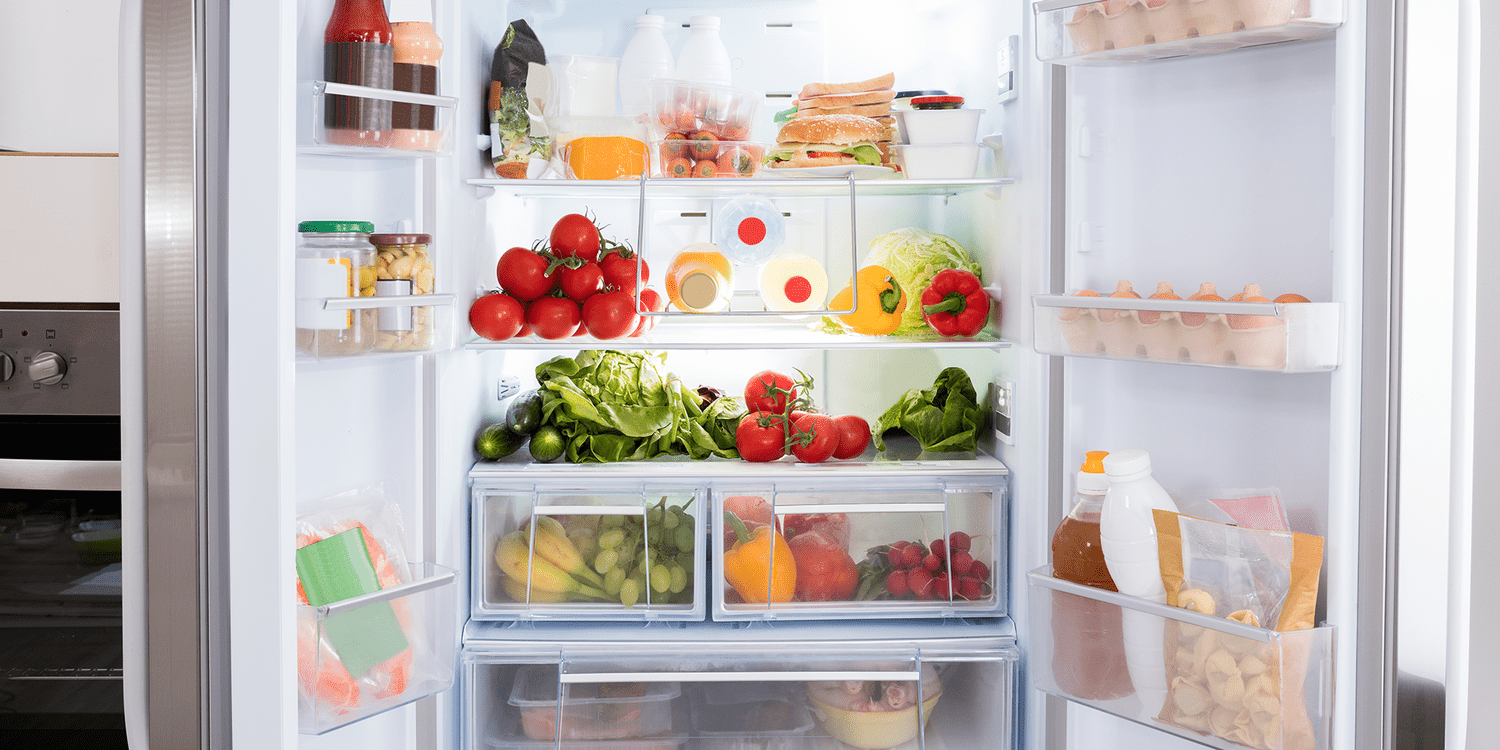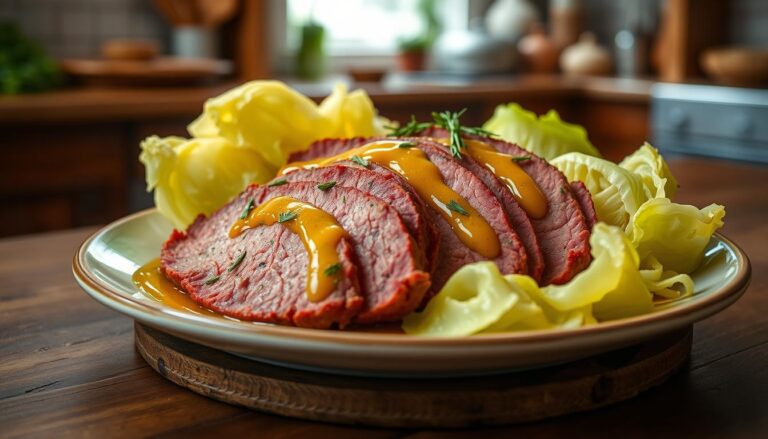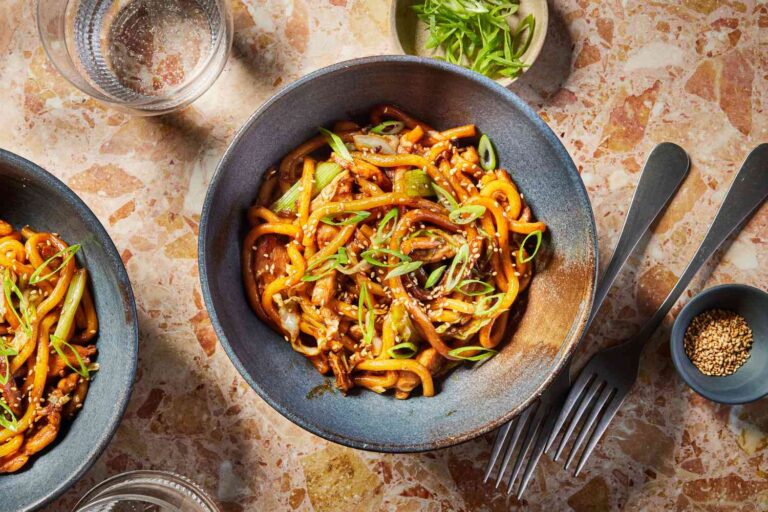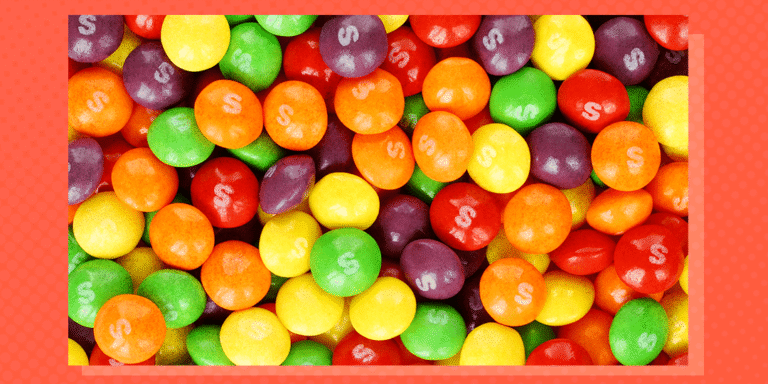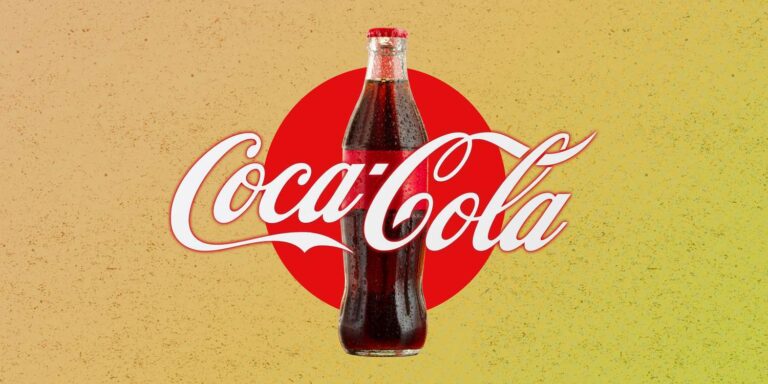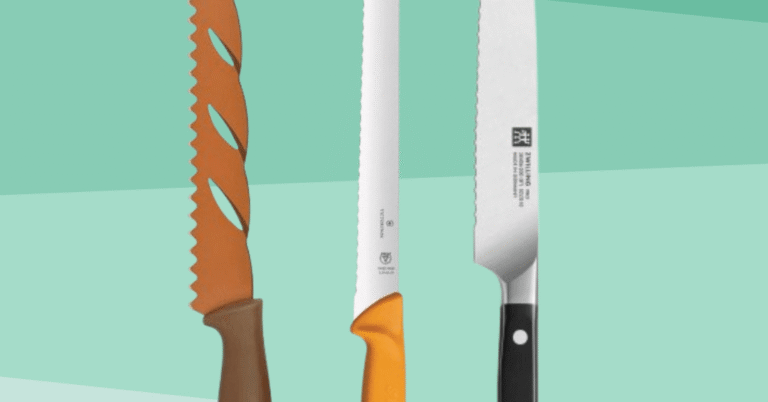10 Frequent refrigerator Foods, which, according to experts, keep you wrong
:max_bytes(150000):strip_icc():format(jpeg)/Ingredients-Stored-Incorrectly-In-Fridge-3x2-1-e41d30a5bb154a69b5fa38ee3130304b.png)
They bring fresh fruit and vegetables home to get more whole food on their plate, but they find that Tomato Turn the flour, the onions are moist in the pan and the potatoes are strangely sweet just a few days after their cold bearings. This is not ideal – and it is completely reversible. In fact, these fresh faux pas are the result of improper storage. These simple tips can help you get bad before you hack, dice or confuse you in a meal. Here are 10 foods that you may keep wrong – and where you have to be kept instead.
1. Berries
“Always keep fresh berries like blueberries in the refrigerator, dry and unwashed, in a rigid container such as your original packaging or in a bowl covered with plastic film,” says Sonali Ruder, an emergency doctor, a trained cook and a trained cook and a trained cook and a trained cook and a trained doctor and a doctor for emergency room Blogger. “You should take up to 10 days if you are saved in this way.”
Rowing adds, you can also freeze berries for an even longer life, but make sure that you rinse and dry them in front of the big cold. The remaining water drops invite the freezer, which means that berries are bitter and aromatic after storing.
“After rinsing and drying, put them in containers or reclassifying plastic bags and put them in the freezer,” she says. “You will take six months.”
2. Potatoes
Cold temperatures pull moisture from potatoes, shrinking and shrinking. According to potatoes USA, a potato marketing and research organization, the climate of the refrigerator converts the strength of the potatoes into sugar. The result? Hearty potatoes are cute and the texture comes out sticky when cooking. The potatoes also take on a brown color when cooking. This does not mean that you are bad – you can eat you safely if you can endure the strange texture and the odd taste – but you are certainly not very appealing.
When you keep potatoes in the fridge, take them out and let them come to the room temperature before cooking. The sugar conversion will not stop, but it helps to prevent discoloration when you cook it.
Keep spuds in top shape by storing them in a cool, dry place such as a pantry or a closet. However, do not protect them near the stove, the stove, the dishwasher or the wash basin. These places have too many temperature fluctuations and too much moisture for the right potato storage.
3. Knoblauch
Like potatoes, fresh heads of Garlic can wither in the cooler fridge temperatures. This strong, fragrant Allium belongs to a cool, dry place such as a closet or a pantry.
If you have come into a premium of onions, you can freeze them for long -term storage. Freeze the light bulbs entirely and in time or remove the individual CarnatePeel the paper shell and freeze it in a glass Aluminum foil.
You can remove individual cloves for a recipe or let an entire light bulb come to room temperature if they are ready to use them. Frozen garlic can chop or harden more easily than fresh. Consider this cooking bonus.
4. Onions
The modest onion has no place in the cool fridge, says Tom Irving, a British nutritionist, nutritionist and blogger. “Treat some people like salad vegetables and store them in the fridge, which is wrong on several levels,” he says. “This is an art pas because the cold and moist environment is perfect for converting strength in the onion into a sugar, the onion spoils and loses this unmistakable crunch.”
In addition, the intoxicating aroma of an onion can spread to nearby fruit and vegetables. Nobody is looking forward to biting into an apple fragrant onion. “Onions have particularly volatile aroma compounds that mean that they should be removed from other foods,” says Irving.
When Irving is kept in a dark, cool and dry environment, the onions last up to 30 days. However, as soon as you are cut into an onion (but do not use the whole thing at the same time), wrap everything in plastic film and put in the fridge.
5. Cucumber
The expression “cool as a cucumber” makes the slim fruit a bad service. Cucumber I don’t like being cold or even cool. The temperatures below 50 degrees accelerate the spoilage, and most of the cooling steps are (uncut) longer at 40 degrees F. cucumbers if they are stored at room temperature. Hold them in a dry place on the counter and protect them from possible damage. A fruit bowl, for example, would not be a good place for cucumber, since the fall of hands can damage the sensitive skin of the cuke.
Also keep cucumber from other fruits such as tomatoes, bananas and melons. The ethylene gases that radiate these fruits when traveling will travel faster.
6. Tomato
If you go into the door and immediately attach your beautiful farmer’s market tomatoes into the crispy drawer of your fridge, stop. The cold area of the refrigerator makes tender tomatoes flour, mushy and chaotic. Tomatoes that are kept in the cooling bearing lose from the water according to the taste and water, so the Department of Agriculture and Natural Resources of the University of California. What remains of her heirloom fruit is sad.
The only time that it is acceptable to put tomatoes in the fridge is to delay “just mature” tomatoes from becoming too soft. You can get it in for a short time – no longer than two days. In this mature state, the tomatoes don’t lose as much taste.
Store tomatoes at room temperature and away from everything that can develop sensitive skin. If too many are ripe at the same time, try to make one Homemade tomato sauce.
7. Eggs
You can cause the picturesque egg cups in fridge doors to store them there, but resist the urge. Eggs do not belong to the door.
Dairy products and eggs belong in the coldest part of the refrigerator. This is usually the middle shelf. Everything in the door looks like several temperature fluctuations every day. Every time the refrigerator door is opened, these raw food rise in temperature. This can be used to spoil or, worse, food poisoning.
8. Fresh herbs
You probably buy grapes Herbs in the grocery store or farmers’ market, but don’t put them away when you are at home without giving you a shot on a longer shelf life. Herbs Need a little moisture and moisture to wrap the stems from coriander, parsley and other leaf herbs in a damp paper towel. Place the herbs and the towel in a re -lockable plastic bag and store the sharper drawer of your refrigerator. Wear the paper towel again every two days.
There is an exception to this rule, and that is basil. Do not keep basil in your fridge. Instead, put the fragrant herbs in a cup of water and put them on the counter. The cool temperatures and moisture of a refrigerator turn basil yellow and let them shrink.
9. Avocados
Do not store these holy fruits for the love of all avocado in the fridge. Avocados do not ripen in the cool temperatures of the refrigerator. You will be rock hard for a week after you put them in the drawer.
Instead, leave avocados on a counter or in a cool, dry place. Remove all plastic bag covers. The gases that avocados emit have to escape so that they do not risk spoiling or rotting.
Is it okay to keep an avocado in the fridge? As soon as it is ripe and they are cut into it. Wrap the fruits in plastic film and cool them in the fridge to slow down the additional maturation.
10.
Fish, poultry and other meat should go into the bottom of your fridge, away from food that you may not wash before eating. Do not save meat over the food. Any leakage from the meat could be a serious risk of food safety.
Most refrigerators are supplied with built -in drawers for meat. Place the soil with a disposable antibacterial mat that you can replace regularly so that bacteria are not spreading the inside of your fridge.
Tips and tricks for storing food
- Wash nothing before you are ready to use it. If you have taken up the habit of washing fruit and vegetables before storing, stop. “Washing accelerates the deterioration, so rinse it just before eating,” says Ruder.
- Fruit and vegetables don’t mix. This is not a lawn crowd for healthy food. It’s just a scientific fact. Many fruits such as apples and tomatoes produce ethylene gas. This emission acts like a speed tire for any nearby vegetables and can cause spoilage.
- Scrap the plastic. If you integrate your Brussels sprouts or broccoli in the grocery store, take them out and store them in a breathable mesh product bag in the fridge. The plastic air captures the air, which means that they can spoil faster.

